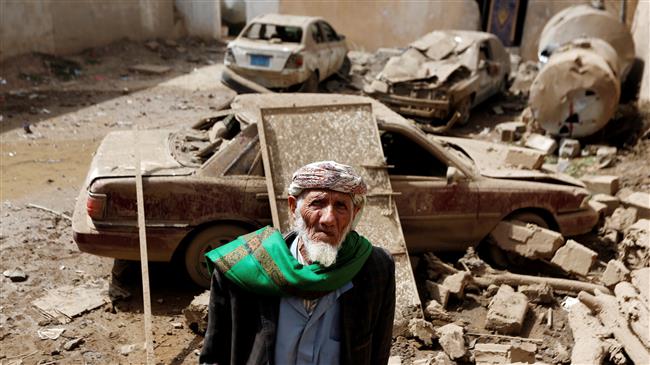
RNA - "The relentless conflict in Yemen has pushed a country already on the brink deep into the abyss," UNICEF executive director Henrietta Fore said in a statement to journalists in Geneva on Tuesday following her visit to the war-ravaged country.
Fore recounted her observation of "what three years of intense war after decades of underdevelopment and chronic global indifference can do to children."
The UNICEF said on Tuesday that over 2,200 children have been killed and 3,400 others injured during the three-year conflict in Yemen
"These are only numbers we have been able to verify. The actual figures could be even higher," Fore said, noting that "there is no justification for this carnage."
Fore warned that apart from the deaths and injuries, millions of Yemeni children have dropped out of school while many others are being forced to fight with different sides in the conflict, being married off, going hungry and dying from preventable diseases like cholera.
Children comprise half of the nearly 22 million Yemeni population who rely on humanitarian assistance for their survival.
The UNICEF chief warned that the global concerns that Yemen’s healthcare and education systems would collapse have basically materialized, noting "The worry about collapse has now passed beyond that."
Fore said the relentless war has damaged nearly 1,500 schools across Yemen, noting that many health workers and teachers in the country have not received any payments over the past two years.
The UNICEF and the World Bank have provided some nine million people with small amounts of cash in an attempt to help them buy bare necessities such as food and medicine.
Fore pointed to the urgent need for providing assistance to the residents of Yemen’s western port city of Hudaydah which has faced weeks-long military campaign by Saudi-led coalition.
"In Hudaydah, as in the rest of the country, the need for peace has never been more urgent," Fore said.
Nearly 70 percent of imports of Yemen, where eight million people face imminent famine, comes from the port of Hudaydah.
Since June 13, the Saudi-led military coalition, with the help of the militia loyal to Yemen’s former President Abd Rabbuh Mansur Hadi, has been breathing fire on Hudaydah, the provincial capital, a densely-populated city and Yemen's most vital port.
The invasion of Hudaydah has already triggered fears of a fresh humanitarian crisis in a country where more than 22 million people are in need of aid, including 8.4 million who are at risk of starvation.
The UNICEF chief called on all the warring side to rally behind efforts by the UN envoy for Yemen Martin Griffiths to negotiate a settlement for the conflict in Hudaydah and to resume peace talks for the entire country.
According to Press TV, Saudi Arabia and its allies launched a brutal war on Yemen in March 2015 to reinstall the Hadi regime and crush the Ansarullah movement.
The Yemeni Ministry of Human Rights announced in a statement on March 25 that the war had left 600,000 civilians dead and injured until then.
The Saudi aggression has also taken a heavy toll on the country's facilities and infrastructure, destroying many hospitals, schools, and factories.
Since 2016, the impoverished nation has also been grappling with a deadly cholera outbreak, which has already killed thousands of people.
Several Western countries, including the United States, Britain and France, are accused of being complicit in the aggression as they supply the Riyadh regime with advanced weapons and military equipment as well as logistical and intelligence assistance.
847/940